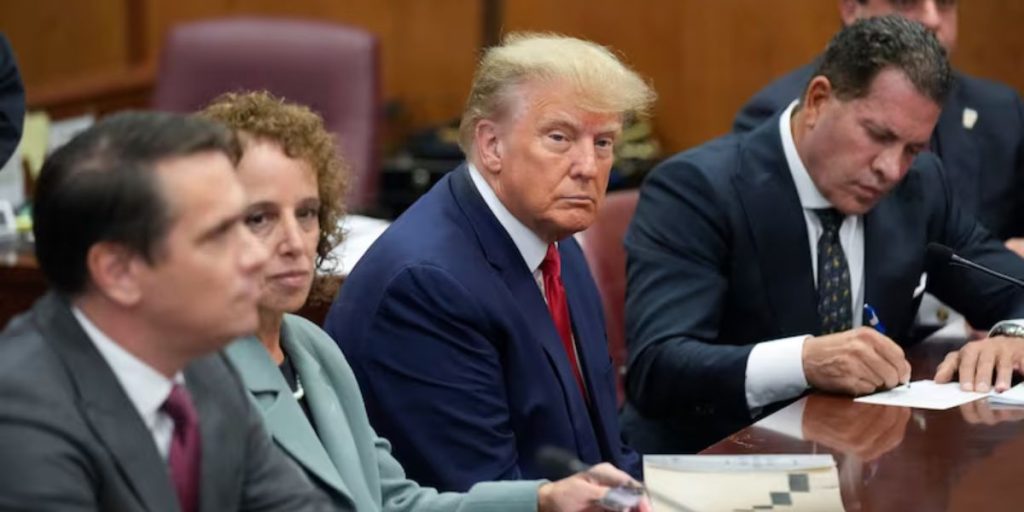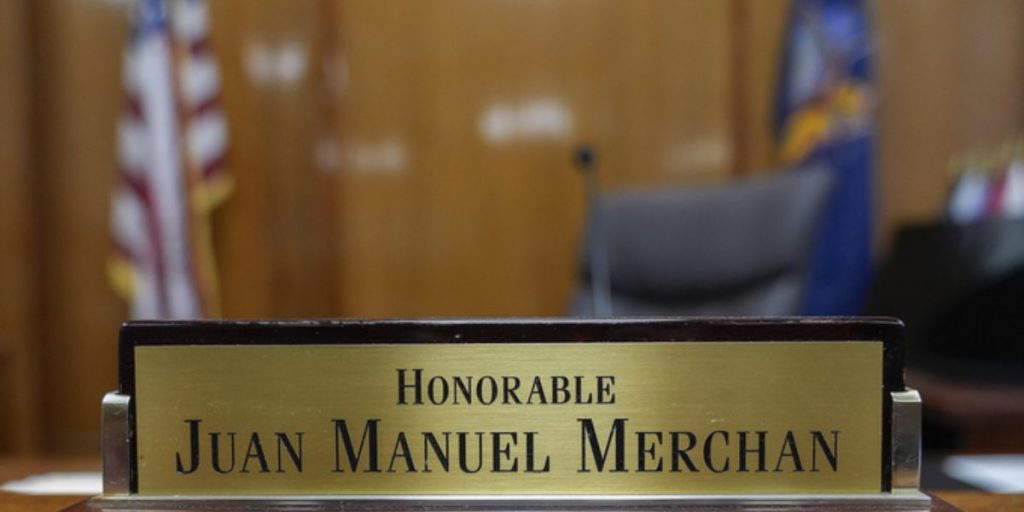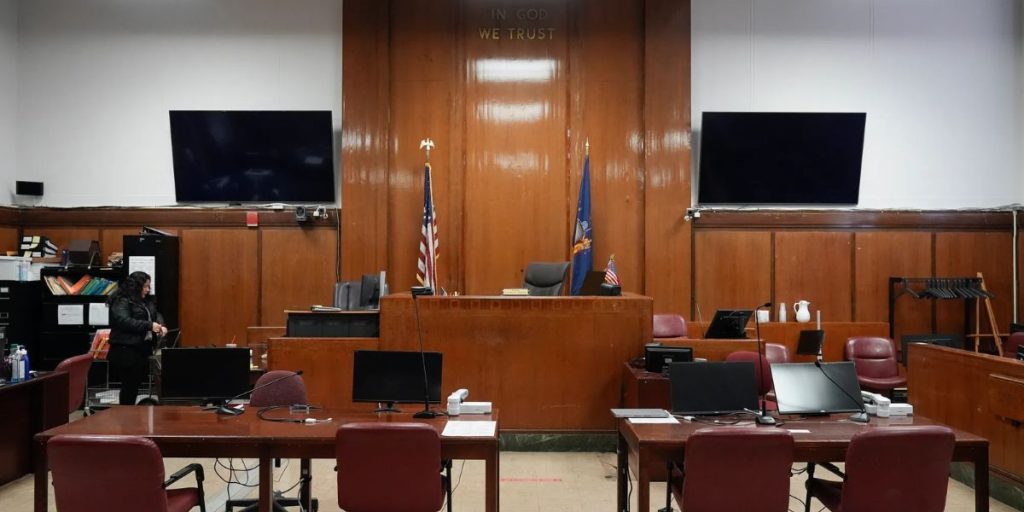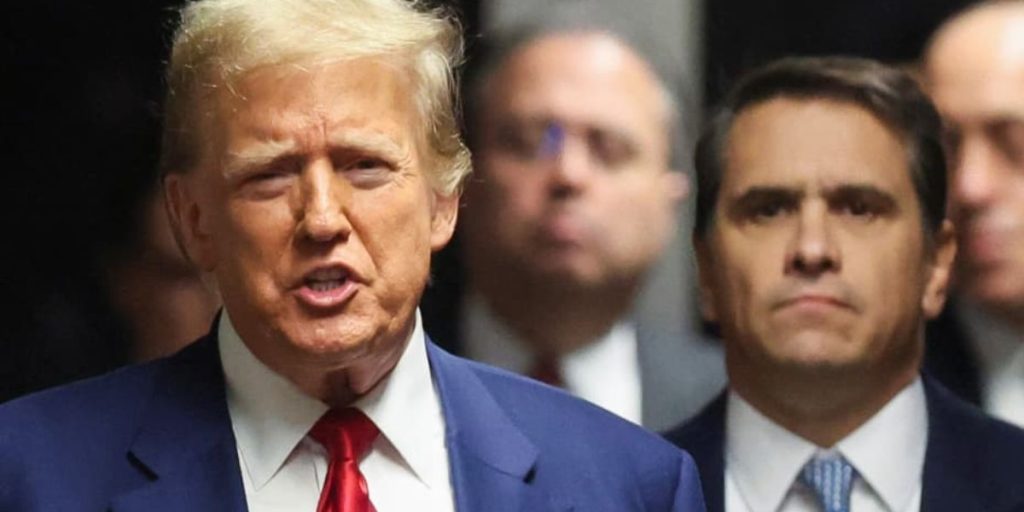Of Manhattan’s 1.4 million people, a dozen will soon become the first Americans to sit in judgment on a former president accused of a crime.
Jury selection is slated to begin Monday in ex-President Donald Trump’s hush-money lawsuit, the first of four criminal charges against the probable Republican presidential nominee. The procedures present a historic challenge to the court, the lawyers, and the ordinary folks who make up the jury pool.
“There is no question that picking a jury in a case involving someone as familiar to everyone as former President Trump presents unique problems,” one of the trial prosecutors, Joshua Steinglass, said during a hearing.

These challenges include finding people who can be objective about one of the most divisive figures in American history and identifying any bias among prospective jurors without breaching the privacy of the vote box.
There is also the possibility that somebody will try to manipulate their way into the jury to serve a personal goal. Or they may be hesitant to decide a case against a politician who has used his social media platform to criticize court judgments that go against him and has tens of millions of ardent supporters.
Even if jury selection is difficult, Margaret Bull Kovera, a psychology professor at John Jay College of Criminal Justice, believes it is not impossible.
“There are people who will look at the law, the evidence presented, and make a decision,” says Kovera, whose research focuses on juror psychology. “And the judge and attorneys’ job right now is to figure out who those people are.”
Trump has pleaded not guilty to falsifying his company’s accounts in an attempt to conceal payments made to cover allegations of extramarital sex during his 2016 campaign. He disputes the interactions and claims the prosecution is a legally fraudulent, politically motivated attempt to derail his present campaign.
He will stand trial in a criminal court system where juries have ruled on cases involving a number of well-known figures, including mobster John Gotti, disgraced film mogul Harvey Weinstein, and Trump’s own firm.
Over the previous year, juries in a nearby federal courthouse heard writer E. Jean Carroll’s sex assault and defamation lawsuit complaints against Trump. The state of New York’s fraud lawsuit against the former president and his corporation was tried without a jury last fall in a state court next door.

The hush-money case, however, escalates the stakes, with the possibility of up to four years in prison if he is convicted.
Trump spent decades in Manhattan, where he rose to prominence as a brash real estate tycoon with a penchant for publicity. Steinglass stated, “There is no chance that we’re going to find a single juror who doesn’t have a view” of Trump.
But the question isn’t whether a prospective juror likes or dislikes Trump or anyone else in the case, Judge Juan M. Merchan said in a brief on Monday. Instead, he said, it’s whether the person can ”put aside any personal views or biases and render a conclusion that is based on the evidence and the law.”
Merchan begins the jury selection process by filling his New Deal-era courtroom with prospective jurors and giving them a quick overview of the case. The judge will then excuse anyone who indicates with a show of hands that they are unable to serve or be fair and impartial, he wrote.
Those who remain will be called in groups to the jury box — by number, as their names will not be made public — to answer 42 questions, some of which have multiple sections.
Some are regular questions regarding potential jurors’ backgrounds. However, the two sides have been at odds about what questions prospective jurors should be asked regarding their political activities and viewpoints.
Merchan underlined that he will not allow the lawyers to question jurors about their voting preferences, political contributions, or party registration.
However, the approved questionnaire asks, for example, whether someone has ”political, moral, intellectual, or religious beliefs or viewpoints” that may “slant your approach to this case.” Another question asks prospective jurors if they support any of a half-dozen far-right or far-left organizations, have attended Trump or anti-Trump demonstrations, or have worked or volunteered for Trump or organizations that oppose him.
Potential jurors will also be questioned about any ”strong opinions or firmly held beliefs” about Trump or his candidacy that would cloud their ability to be fair, any feelings about how Trump is being treated in the case, and any ”strong opinions” on whether ex-presidents can be charged in state courts.

The process of selecting 12 jurors and six alternates may be chess-like, with opposing sides trying to figure out who they want and who their opponents want. They must also decide which prospective jurors they can challenge as unable to serve or be impartial, and when it is worthwhile to use one of their few chances to rule someone out without providing a reason.
“A lot of times you make assumptions, and arguably stereotypes, about people that aren’t true, so it’s important to listen to what they say in court and, if possible, online,” says Thaddeus Hoffmeister, a University of Dayton law professor who studies juries.
In high-profile cases, judges and attorneys keep an eye out for “stealth jurors,” persons who try to be chosen because they want to influence the outcome, profit from the experience, or have other personal reasons.
In contrast, some persons may prefer to avoid the attention that comes with a case involving a well-known person. To try to remedy this, Merchan decided to keep the jurors’ names hidden from everyone save prosecutors, Trump, and their respective defense teams.
The six jurors and three alternates in each of Carroll’s federal civil proceedings against Trump were driven to and from court in an underground garage, and their identities were kept hidden from the public, Carroll, Trump, their attorneys, and even the judge.

Carroll’s lawyer, Roberta Kaplan, says that if she were engaged in the hush-money case, she would ask the court to take every precaution to guarantee that jurors remain anonymous and do not fear being singled out online or in the media.
”The fundamental issue, given the environment we live in, must be the potential for jury intimidation,” Kaplan stated.
Jurors were selected within hours for both trials of Carroll’s charges, which Trump denies. Carroll’s lawyers later attempted to remove a jury midway through the trial when he admitted listening to a conservative podcaster who questioned Carroll’s case. The judge privately questioned the juror, who insisted he was fair and impartial.
He remained on the panel, which unanimously ruled Trump responsible for sexual abuse and slander and awarded Carroll $5 million. Eight months later, the second jury awarded Carroll another $83.5 million for defamation.